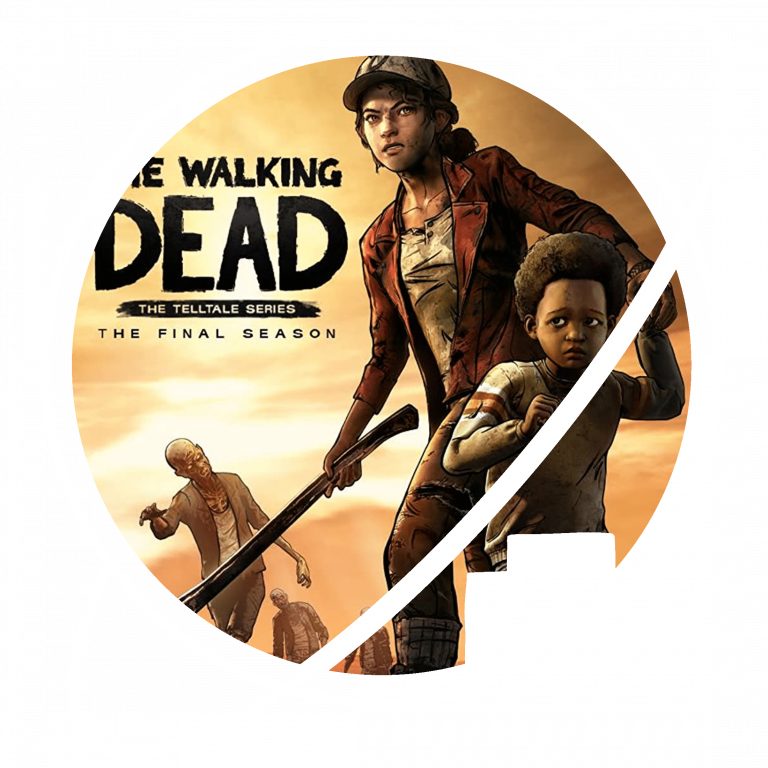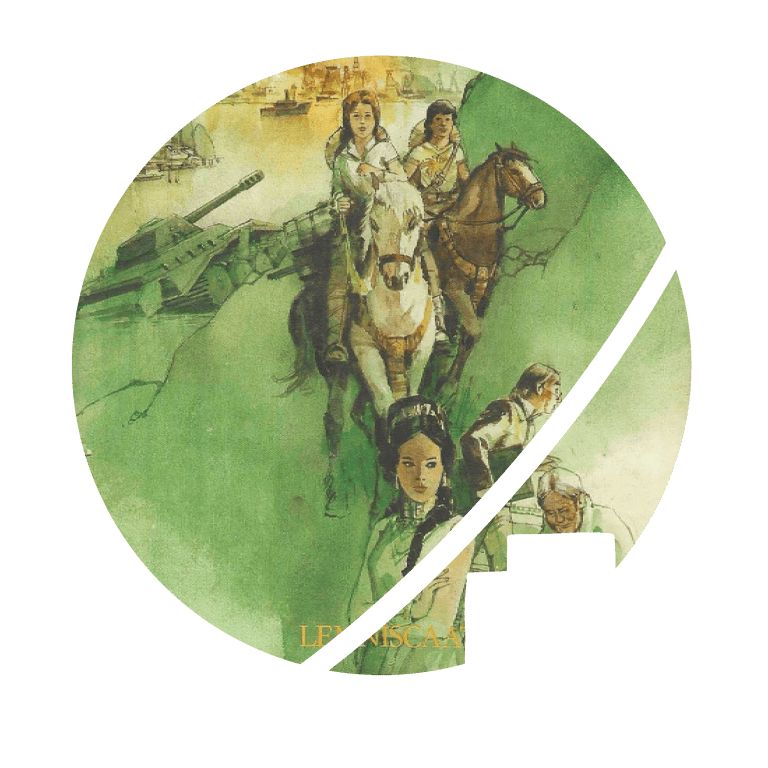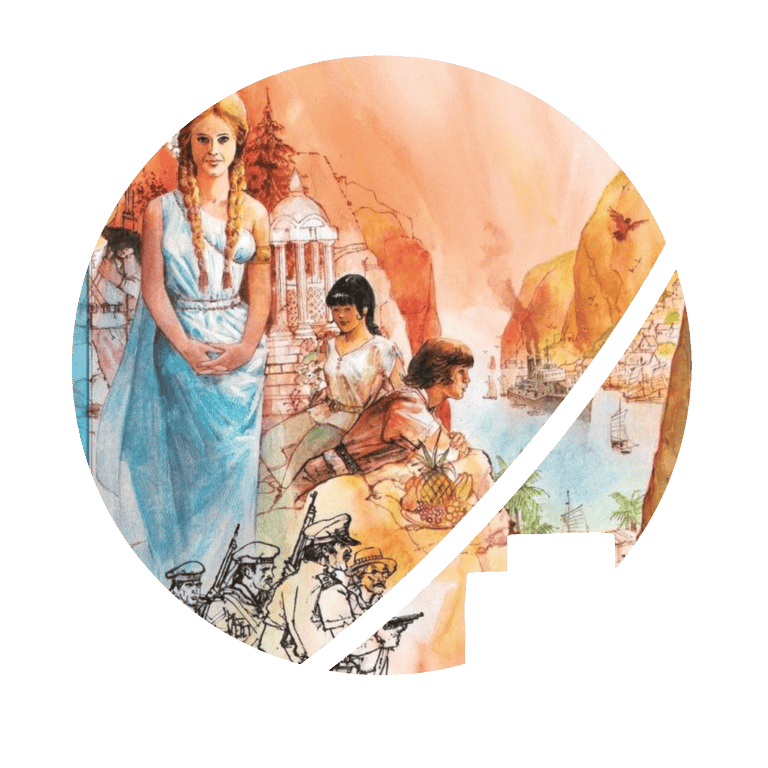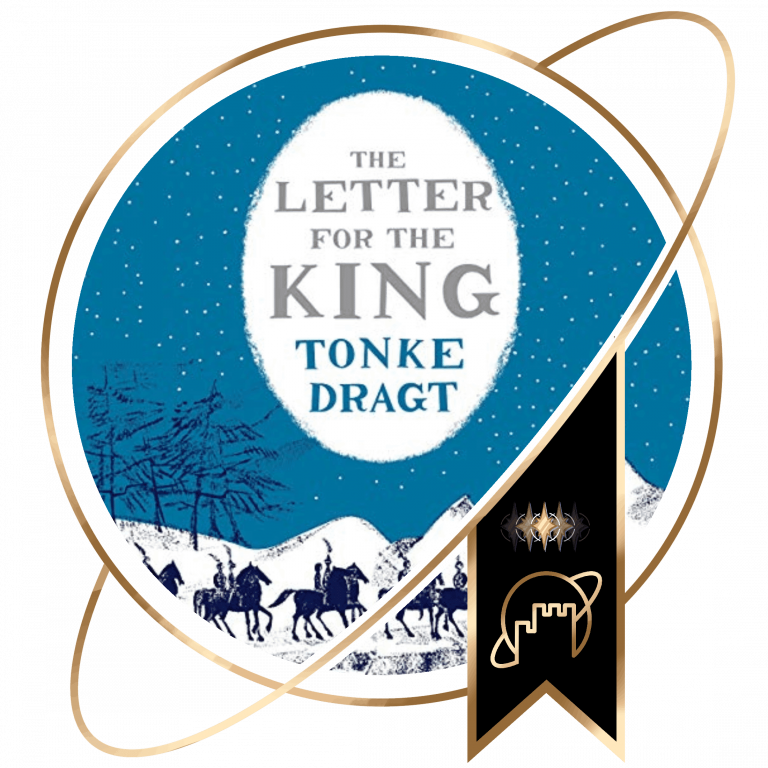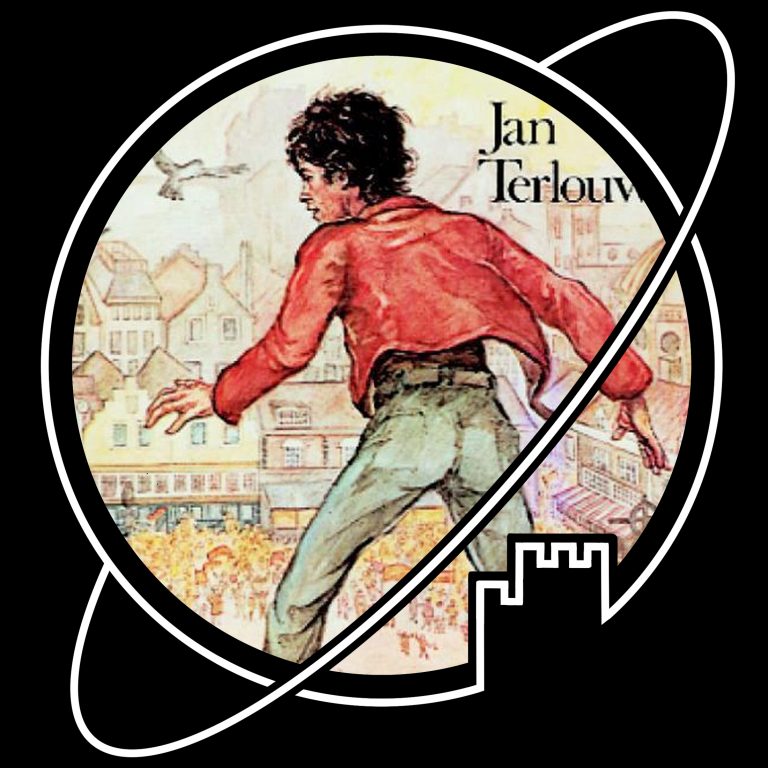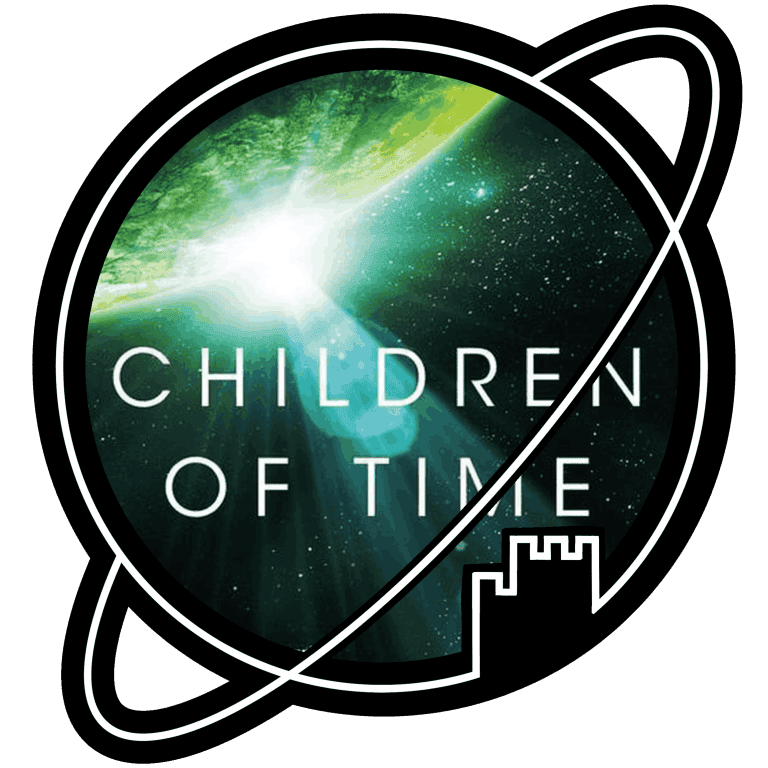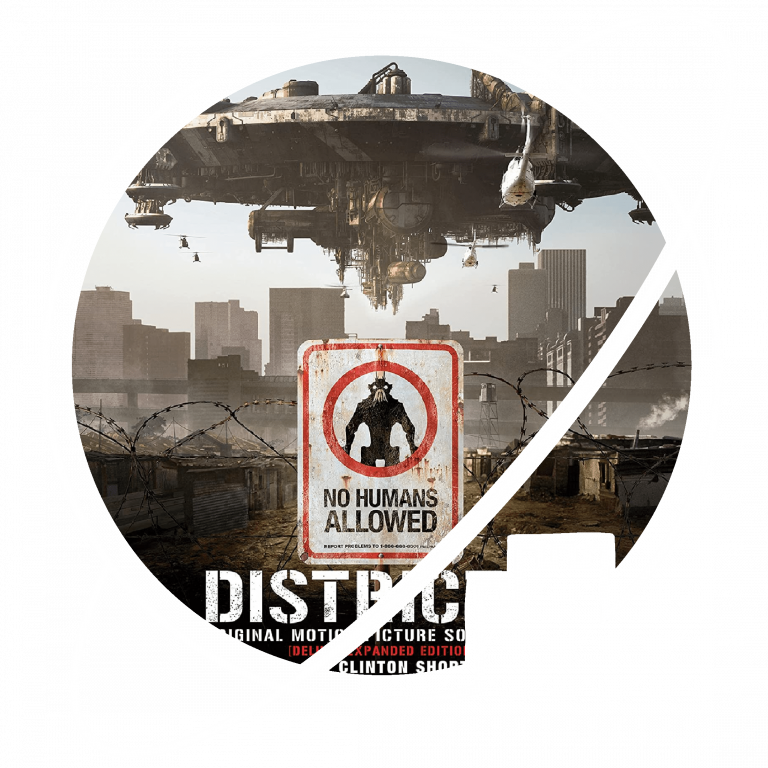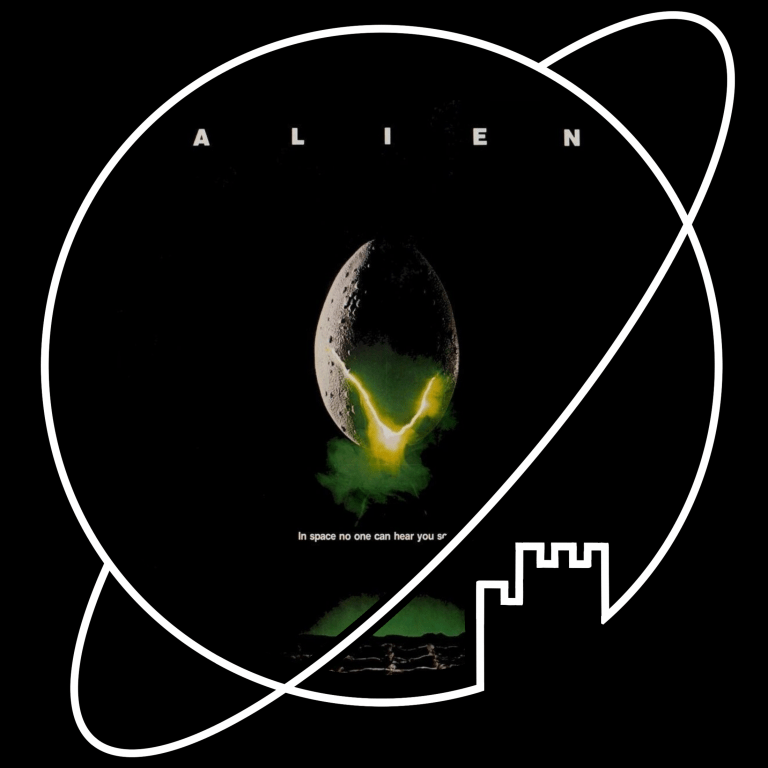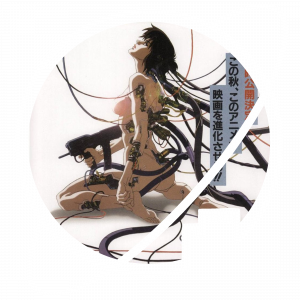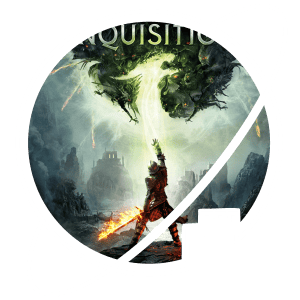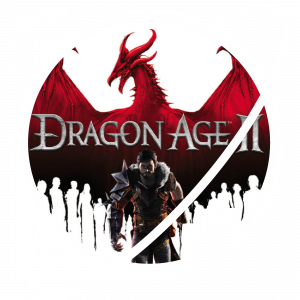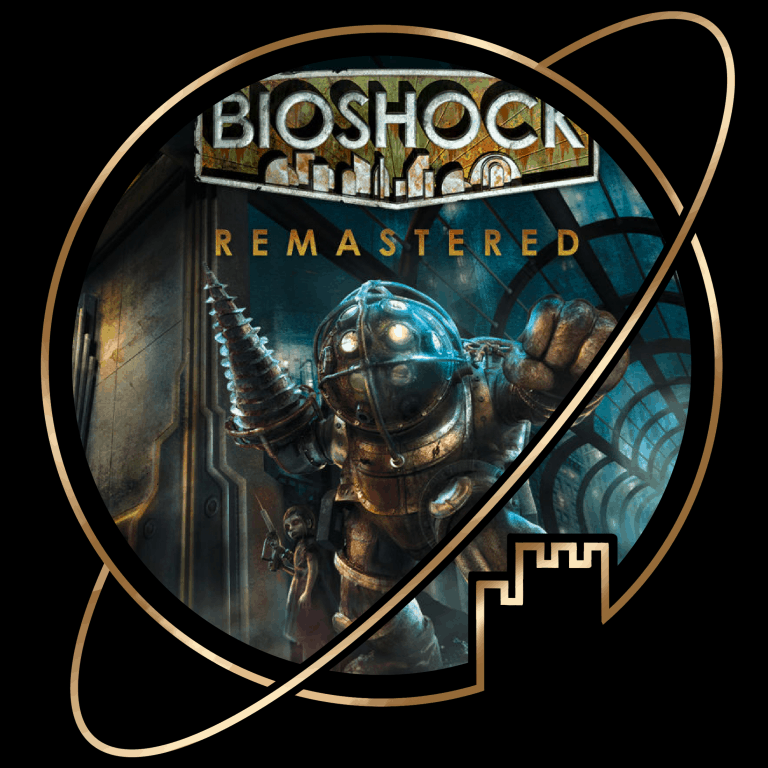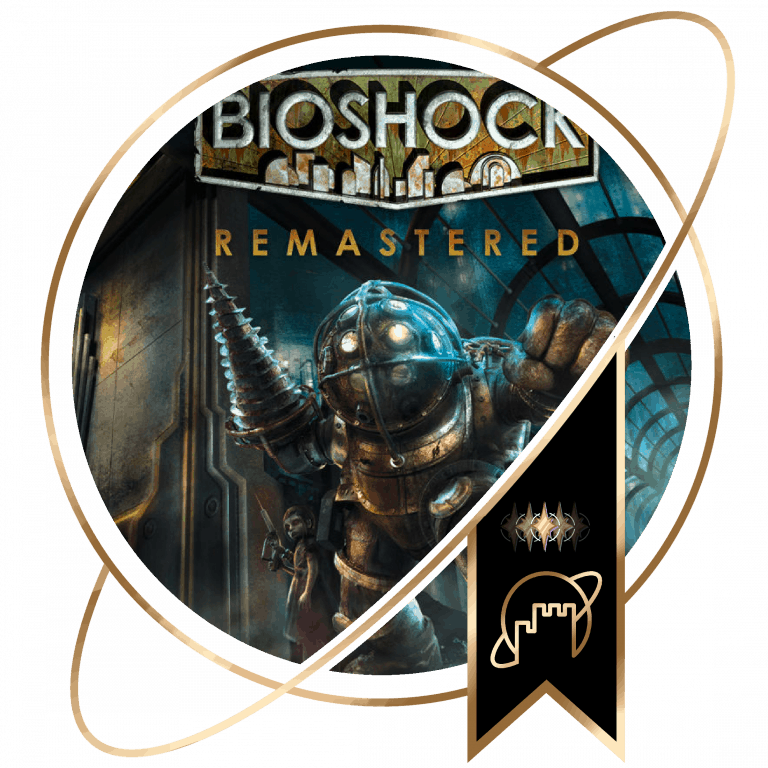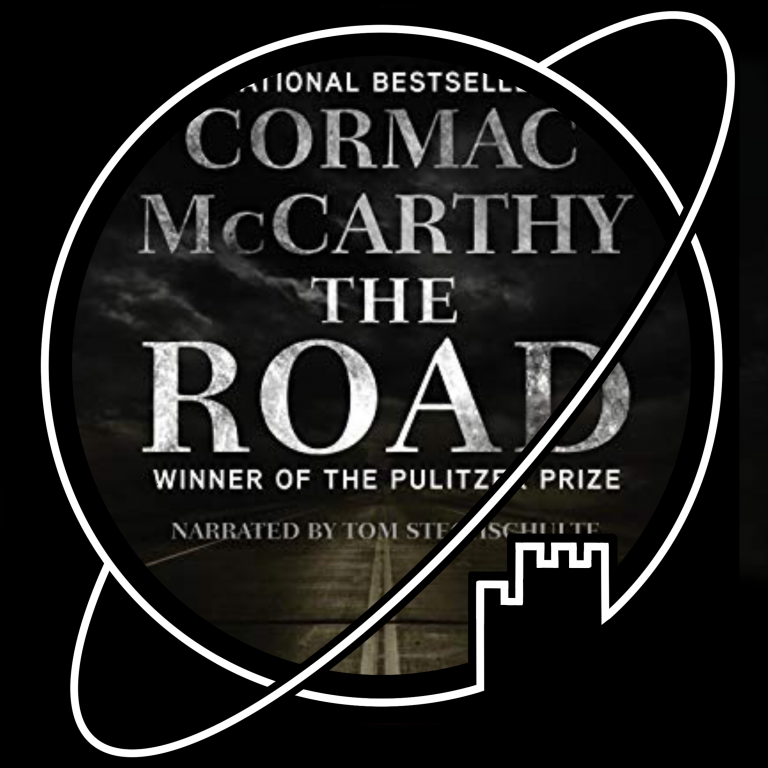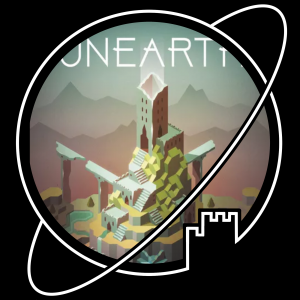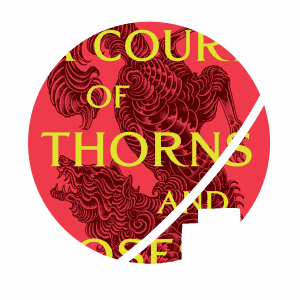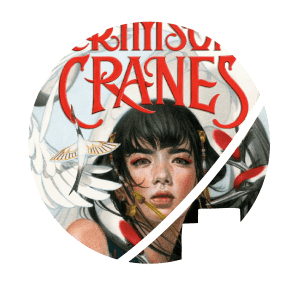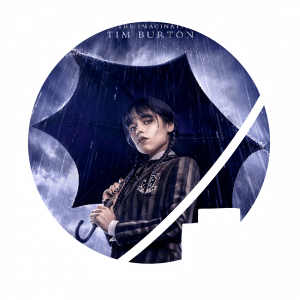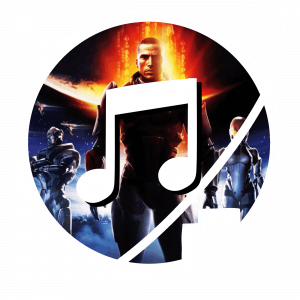Welcome to the Escape Velocity Collection!
We are an opinionated group of friends reviewing all sorts of fantasy and science fiction media. Don’t forget to get to know the curators and visit our curated Collection, where we discuss the stories that never cease to transport us to another world.
Will you escape with us?
LATEST POSTS:
- TV show developed by Craig Mazin and Neil Druckmann for HBO Max
- Released 15 January 2023
- Starring Pedro Pascal and Bella Ramsey
- 1 Season of 9 Episodes, renewed for a second season
Global society collapsed after a fungus turning people into zombies spread like a wildfire. Joel is a world-weary smuggler used to a life out of sight of what remains of the authorities. Ellie, on the other hand, is a sassy teenager growing up in a dreary post-apocalyptic world, whose importance neither she nor Joel can grasp. When Joel is tasked to take Ellie on a dangerous trip across country, he is (understandably) less than thrilled.

I’d heard a lot about the game The Last of Us but have never had a PlayStation to play it on. So no. I don’t think any of us have played the game.
I actually ended up watching this show twice. I had already watched the first episode when we decided it would be our next show to watch together. I decided to continue watching the show even though I knew I would be seeing it again. The first episode just really gripped me, and I didn’t want to have to wait.
I really loved The Last of Us. I liked the way it was a zombie story based on a video game, but there’s barely any zombie fighting in the show. We don’t get scenes of Joel gunning down hordes of zombies unless it’s absolutely necessary for the plot. We’re all scared of the infected, but they’re mostly background noise. The Last of Us is not unique in this, though. I think most zombie stories use the setting as a way of exploring how humanity behaves when all the rules of society have gone out the window. It works really well.
Much like my fellow curators, I loved the casting of this show. Pedro Pascal and Bella Ramsey do a phenomenal job as Joel and Ellie. I was particularly charmed by Bella Ramsey.
While I did love the show, I’m a little conflicted on the topic of adapting a video game (or any medium) for television or film. I think as a society we have this idea that TV and Film are a superior form of media, and the highest honour a book or comic, or in this case, a video game can reach is being adapted for the screen. I’d like to challenge that assumption and say that I think some stories are best told in other ways. I think video games are a phenomenal medium because they put the player at the centre of the action. If the main character in a movie does bad things, you get to judge them from the outside. When the main character in a video game does bad things, that’s the Player doing those things. It’s you. I’d argue that the psychological experience is very different.
Another game that’s being adapted for the small screen is 2K’s Bioshock. While I’m very excited about it because I love Bioshock, I also know that the central theme of the game is choice. The story works so well in a game, because as the player you are constantly the one making those choices. The Last of Us explores the question of “how much violence can we use to protect the ones we love?” I’d argue that this question is explored better in a medium where we ourselves commit that violence than in one where we merely observe it from the outside.

Before I dive in, a quick disclaimer: I never played the The Last of Us-video game, so I can’t comment on the series’ accuracy to the source material. I did, however, notice a number of very video gamey moments in the cinematography of the series, be they the frequent over-the-shoulder camera angles, the awkward split ups between the characters, the boss-zombies, or even the moments when a companion disappears just as you round a corner. And I love that! It’s (mostly) pretty subtle, but if you play(ed) games a lot it’s sure trigger that ‘I see what you did there’-feeling.
So, aside from faithfully bringing a video game to the small screen, is The Last of Us any good? The short answer is ‘yes’. The long answer is ‘varying degrees of yes’.
Interesting about The Last of Us is that many of its episodes can be viewed, individually or in pairs, as more or less separate, self-contained stories. Of course, some of those stories are better than others – but with The Last of Us, that is a matter of variation within the spectrum of ‘great’.
Many of the story lines are very heavily character-driven, which I though was surprising for a series based on a video game, a medium for storytelling that is, after all, not know for its literary inclination. But the writers of The Last of Us managed to escape the trap where the series is a series of action sequences tied together by character cutscenes. Rather, the action sequences ty together the character scenes, and each of the action sequences plays up the character element.
It’s not just the writing either. The production value is great. The performances by Bella Ramsey and Pedro Pascal are consistently phenomenal. Overall, there is very little to dislike about The Last of Us.
Really, my only disappointment was with the plotlines chosen for the final episodes (which, I suppose, were predetermined by the video game). There is a pervasive trope in post-apocalyptic (zombie) fiction that in the end, the biggest danger are always other people. As the story progresses, the initial premise – the world being overrun by mindless living dead – becomes background static while a power struggle between survivors takes front stage. The Walking Dead would be a great example.
The Last of Us is – in my eyes, unfortunately – no different. After the first couple of episodes, the undead are relegated to a plot tool with basically only one purpose: to infect a character during a momentary lapse of vigilance and create the moral conundrum for the other characters whether or not to shoot them on the spot before they turn. Don’t get me wrong, this is a trope for a reason and The Last of Us does these moments very well. But I am always a little disappointed that the setting – the zombie apocalypse – stops being integral to the plot halfway through. I don’t want to spoil you, but there are some other tropes of the setting that The Last of Us plays straight relatively heavy handed in the last few episodes. And though they aren’t poorly executed, I felt like the great chemistry between Ramsey and Pascal is perhaps wasted on what could have been a more thoughtful spin on the zombie apocalypse genre. Again, The Last of Us is great and you should definitely go watch it. But to me, these kinds of choices make the difference between an exceptional series and ‘just’ a great one.

If I’m honest, I have to admit that I was in a pretty terrible mood when we started watching the first episode of The Last of Us, which made me find fault with every single detail of the episode despite it coming highly recommended (sorry, Lotte!). Luckily no one took my grumbling very seriously, and from the second episode onwards my mood improved, as well as my opinion of the show.
It feels almost redundant to point out that Bella Ramsey’s acting is the absolute highlight of the series. The nuance and subtlety in their acting is incredible to watch, and the character of Ellie herself is simply hilarious.
While the post-apocalyptic setting and the main plotline are perhaps not the most original, for me the show still managed to surprise. Quite a few times I thought I knew exactly what was going to happen, but then they completely threw me for a loop and went in a very different direction. I don’t know if this is the result of it being adapted from a video game, but I really enjoyed this aspect. Because of these moments I was less bothered by the times when they did follow the well-known tropes that come with the genre.
I have never played the game myself so I don’t know how it holds up if you have already played it before watching, but I can at least say that not having played it does not detract anything from the viewing experience.
All in all I thoroughly enjoyed it, and am definitely looking forward to the next season.

So, The Last of Us… I didn’t play the games (playing an action-adventure game in a zombie post-apocalyptic setting would probably be the end of me), but was familiar with the general discourse around it. Many people praise the story. Additionally, it was already known to me how brilliant of an actor Bella Ramsey is, after seeing them in action in The Worst Witch, Game of Thrones, Hilda and the medieval comedy Catherine Called Birdy. They have all that range when it comes to acting… Also, Pedro Pascal always seemed like a decent fellow to me, so my expectations for this series were quite high.
It would be easy for me to try and compare The Last of Us with The Walking Dead, a series that is close to my heart and also revolves around a post-apocalyptic setting with zombies. However, I also believe that wouldn’t be really productive because their way of storytelling is very different. The Last of Us is, at the end of the day, a fairly intimate story, focussing on two protagonists – as expected, masterfully portrayed by Bella and Pedro – and their dynamics with each other and the setting. Some episodes introduce us – in a rather comprehensive way – to the perspective of other characters, often resulting in artistic little side plots that us a deeper understanding of the world Joel and Ellie’s story takes place in.
Aesthetically pleasing. These are the words I would use to describe the greatest strength of The Last of Us (disregarding the high quality of the acting for a moment). From action scenes to slow shots of people walking through desolate landscapes, I enjoyed watching it all. Arguably, I would say the only thing I thought displeasing to look at involved a French kissing zombie. Also, fast zombies give me the creeps. They shouldn’t be running. Ever.
As I said before, I don’t think it’s fair to compare The Last of Us with The Walking Dead. However, the fact that I’ve watched The Walking Dead did have an influence on my enjoyment of The Last of Us. Many of the genre’s tropes and general themes were familiar to me. And although they were well executed in The Last of Us, they didn’t evoke as strong emotions as they would have done some 11 years ago, Overall, however, I think The Last of Us very much succeeds in provoking the necessary questions. What is the meaning of humanity? And what is its worth?
Definitely worth the watch.
Tagged:
See also:
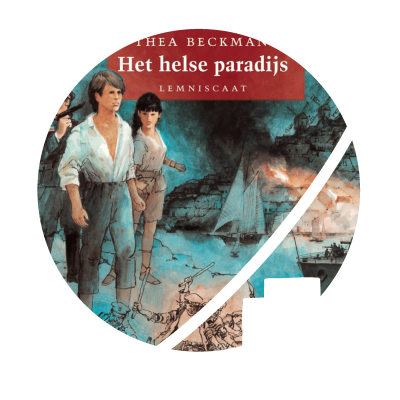

Listened to the audiobook with Emmelie Zipson. No complaints!
Children of Mother Earth does not have an open ending, exactly, but once you finish it your just know the story isn’t over. You’re left wondering – what would happen if more ships would come? More men with guns? Well, Thea Beckman delivered with Het helse paradijs, the second novel in the trilogy.
Het helse paradijs ramps up the scale of the Badeners’ invasion fivefold, from an armed expedition to a full-blown invasion force. It is sometimes a bit tougher to suspend your disbelief – the Badeners seem a really formidable foe, and it is difficult to imagine a pacifist nation without armed forces of any kind holding them back. And I can promise you that the struggle in this second novel is at least as tough as it was in the first, and even more heart breaking. But Beckman makes it work and keeps you glued to the pages along the way.
Het helse paradijs expands on the worldbuilding in the first novel, including, specifically, the politics of both the Great Badener Empire and Thule, but it largely gives us more of the same – a matriarchal pacificst solarpunk utopia at war with a patriarchal explansionist military superpower. Het helse paradijs gives us great descriptions of the beautiful landscapes of Thule, the coziness of its cities, and the happiness of its people. And what is not to like about that?
What I particularly like about Het helse paradijs is the switch of perspective. Where Kinderen van Moeder Aarde has a Thulenian as the protagonist, Het helse paradijs features a Badener as the main character. This flips the script entirely: suddenly, the Great Badener Empire is home and Thule is the mysterious foe. From this perspective, even pacifists can seem cruel, and even cruel deeds seem understandable. This turns up the moral pressure, not just on the characters but on the reader as well.
Het helse paradijs is a great sequel, taking the premise of the first novel, raising the stakes and adding a twist. It may not be as original as the first instalment, but it is definitely satisfying to be back in Beckman’s imagination and see how a bigger shipment of soldiers would affect Thule, and how Thule would affect hem.
All that raises the question… we’ve seen one ship, we’ve seen five ships… Will the Badeners send 25 the next time?
Tagged:
See also:
- Novel written by Lindsay Ellis
- Published in 2020
- Part 1 of the Noumena trilogy


I enjoyed Axiom’s End. It wasn’t an absolute page turner, but it definitely kept me engaged enough to finish it rather quickly. I feel like Axiom’s End is a book that does a lot of things quite well, but nothing really stands out. The plot is decent, the characters are a little flat but not enough to really bother me, and the writing is fine but at times a little clunky. There is a lot of lore about alien species that the reader is asked to process, and I must admit that that’s really not my strong suit.
I might have enjoyed the book more (or less?) if I hadn’t been so familiar with the author’s other work. Lindsay Ellis is a prolific media critic, whom many will know from Youtube. I really enjoy her videos, and whilst I usually don’t expect much from Youtubers-turned-Authors, I had higher expectations from Lindsay, as talking about stories is basically her job. Add to this the fact that she mentioned that she’s been working on this book for about ten years, let’s just say I was definitely biased going into it. Unfortunately, the book didn’t quite deliver. I feel like Axiom’s End lost some of the spark it may have had over the ten years that it’s been in production.
After finishing Axiom’s End I was very much open to reading the sequel. However, I recently realised that it’s been out for a long time and I really haven’t bothered to pick it up. At this point, I’m certainly not against reading it if it ever crosses my path, but I don’t expect it ever will.
Turns out, when it comes to storytelling, I’m somewhat of a conservative – or perhaps traditionalist is a better word. I like stories that make narrative sense. For example, my general gripe with Japanese movies is that by the end, the plot has evolved into a series of emotional beats that might ring true but don’t necessarily… mean anything?
The Mamuro Oshi Ghost in the Shell anime adaptation is really no different. It looks great and works on an emotional level, but the story is paper thin. I enjoyed the movie but felt a little unsatisfied by the end.
So when I was told the live action adaptation by Rupert Sanders (nope, didn’t know him either, so I’m just going to call the live action movie ‘the ScarJo version’ because we all know why we’re really watching) had a more traditional Hollywood story structure, I was actually looking forward to seeing what adaptational choices the writers made. Which is the better version of Ghost in the Shell?
As you’ve been able to read, the ScarJo Ghost in the Shell is a perfectly passable Hollywood action movie. But while the story arcs in that version are nominally complete, they aren’t much more satisfying, and in some ways actually undermine the emotional message I felt the movie was trying to tell.
So. Lost potential! That means: time for another Fiction Fix.
Check out our other posts on content mentioned here:
Before we start
Now, before we dive in, I must admit that I haven’t read the original Masamune Shirow manga (audible gasp!), so I’m in no position to judge how faithful either adaptation is to the source material. And while I get that some of you will immediately click away in the face of such a dreadful sin, I actually don’t think it is a bad thing. First, my impression is that Sanders took his inspiration from the anime adaptation to begin with. And even if that were not the case, it is interesting to compare the outcome of a Japanese and a Western adaptation of the same material.
The next thing to bring up before we start is that we should probably know who we’re dunking on here. The ScarJo version is credited with no less than three writers: Jamie Moss, William Wheeler and Ehren Kruger. Nope, don’t know any of these either. Ghost in the Shell is probably Moss’ and Wheeler’s greatest achievement; Kruger is, according to Wikipedia, best known for… three Transformers movies (because those were known for their great writing). And he’s actually an Oscar-nominated screenwriter for Top Gun: Maverick. Perhaps we can assume his two co-writers carried him on that one…
The Obligatory Refresher
So what is Ghost in the Shell about again? It is the story of ‘Major’, a human brain inside an android.
In the anime version, very little is know of her background. In the ScarJo version, however, we are explicitly told that Major is the sole survivor of a refugee attack, that her body was no longer viable, and that her brain has been placed inside an experimental cyborg ‘shell’ to save her.
Immediately thereafter, we see a conversation between Hanka Robotics scientist Dr. Ouelet, who seems to care deeply for Major both for her own sake as well as for the step forward she represents in science, and Hanka CEO Cutter, who expressly tells us he sees Major as a valuable weapon. Neither of these characters appear in the anime, but they are pivotal to the plot of the ScarJo version.
When we return to her, Major is an operative for Section 9, a non-descript counter-terrorism unit of the Japanese government. While Major is hunting a particularly dangerous cybercriminal (in the anime ‘The Puppet Master’; in the ScarJo version, ‘Kuze’), she is confronted with major (hehehehe) questions on her humanity.
Both versions of the story initially cast the antagonist as an unusually skilled hacker, but in both versions the truth turns out more complex. Importantly, what the antagonist does is actually very different in both versions of the story.
In the anime, the antagonist is just a very powerful hacker Section 9 happens to be hunting. In the ScarJo version, however, the antagonist is actively murdering Hanka Robotics scientists one by one, getting closer to dr. Ouelet all the time.
In both versions of the movie, as Major finds out more about their target, she finds that No Actually, The Villain Has A Point. Here, however, both versions of the story start to diverge.
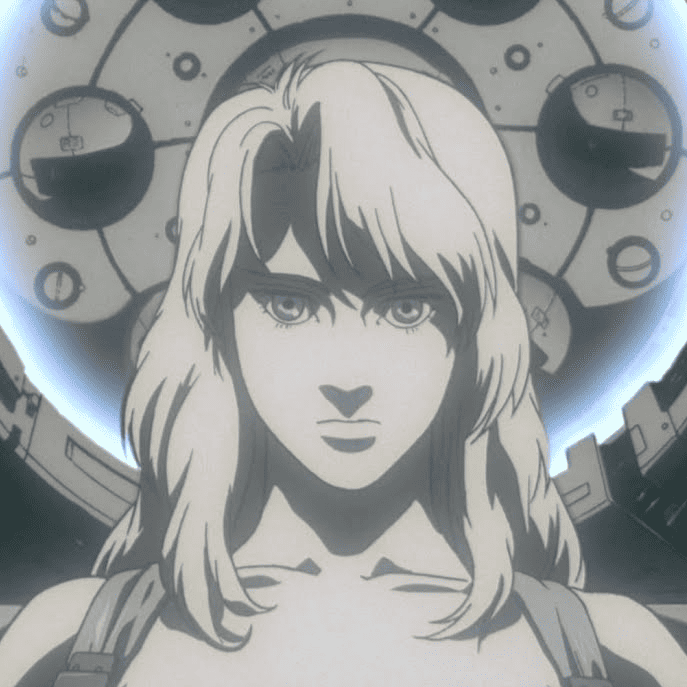

Look, they're both the antagonist! Which of them is cooler, and why is it the androgynous AI concept instead of the Edgy Hurt Soul (tm)?
In the anime version, the Puppet Master hacks a robotics factory to build himself a body and escape Section 6, a rival government agency that designed him for its own purposes. The Puppet Master believes its sophistication as an AI means that he is effectively human and asks for political asylum just before being stolen away by a Section 6 operative; Section 6 ironically wants to keep the Puppet Master as a puppet. Our Section 9 protagonists give chase in an attempt to free him.
In the ScarJo version, however, the antagonist Kuze turns out to be an earlier, uncontrollable version of the same experiment that yielded Major. When they confront each other, Kuze challenges Major to stop taking her medication and to question her past. Major, always having believed to be the first of her kind, confronts dr. Ouelet, who admits to having murdered 97 brains before nearly getting it right with Kuze, and finally hitting the mark with Major herself. She claims not to know where the brains for her experiments came from, and never to have asked. She also admits that Major’s memories of her parents’ deaths have been fabricated. This obviously angers CEO Cutter, who now believes that Major has failed as a weapon, too, since she is no longer controllable. Hanka captures Major and Cutter orders Ouelet to kill Major; Ouelet instead frees her and givers her an address, telling her to find her true past there. Cutter then dramatically kills Ouelet.
Major visits the address, and finds her real mother, a lonely woman who misses her runaway teenage daughter and doesn’t know what happened to her, other than that she joined a group of small-time anti-tech activists. Without making herself known directly, Major connects with her mother on an emotional level. She then follows her memories to the activists’ lair, where she finds Kuze, who turns out also to have been an activist. They remember that both of them were kidnapped by Hanka as test subjects.
In both versions of the story, a big climactic fight with a spider tank follows. In the anime, the tank is controlled by an AI and intended to guard the Puppet Master for Section 6. In the ScarJo version, however, the tank is actually remote controlled by Cutter and wants to destroy both Kuze and Major. Of course, in either version, Major eventually defeats the tank.
Here, probably the most important divergence between the two adaptations takes place. In the animated version, Major actually accepts the Puppet Master’s offer to join with him, and merges their ‘ghosts’ – further complicating the basic question of humanness that underlies the story. In the ScarJo version, however, Major rejects Kuze’s offer to join his anti-augmentation rebellion and returns to her job as a counter-terrorist agent for the government.
None of you read that but at least you can't fault me for not explaining the background this way...

Look, it's the cast and director on the red carpet. Conspicuously absent: the writers…
That makes sense, right?
At first glace, the Hollywood version of the story seems to have much more complete arcs: Major is deceived by Ouelet, finds out about the deception, confronts Ouelet, Ouelet tries to explain but Major does not forgive her; then when Major is captured, Ouelet frees rather than kills her and returns Major’s memories, and is subsequently killed for this act by Cutter, completing her redemption.
Major initially struggles with the question of her human-ness, since she has no memories from before her time as a brain in a shell. She feels she ‘doesn’t fit’ because she has ‘no connection to her past.’ When Major recovers her memories and connects with her real mother, however, that doubt disappears. Cutter gets his comeuppance and is shot in the face by Section 9’s chief. Major returns to her role at Section 9 a fulfilled woman.
Seems great, right?
Except…
Except...
Except two important things.
The first, and most obvious, is the question why Major returns to her old job at the end of the story. We’ll return to that one later, but I find it a puzzling choice.
The second major problem is actually with the main emotional message of the story. Let’s dive in.
Our protagonist feels lost, because she has no past. She wants to know her past. Dr. Ouelet, who is framed as an alternative mother figure and whom Major still trusts at this point in the story, recognises Major’s struggle and tries to comfort her by telling her “our memories do not define us – what we do defines us.”
This suggests that Major is wrong: she wants to know her past, but what she needs to do is to let bygones be bygones and let her current self define her. This is a very common narrative frame in Hollywood: a character wants the wrong thing, and develops by understanding that they need something else.
However, it also makes a whole lot of sense for Dr. Ouelet to be telling Major this, because she knows Major’s memories are false, she lied about this to Major, and apparently Ouelet also has some knowledge of Major’s real past and so must know it ain’t pretty either! She does not want Major to find out, so it makes sense for Ouelet to be steering Major away from questions about her past. From this perspective, Ouelet’s platitudes are plain, self-serving lies.
Already, we're confused
Through Kuze, Major finds out something of her past and then confronts Ouelet, who breaks down sobbing and admits Major’s memories are false; fabricated so she would be a better weapon. Ouelet comes up with excuses, but Major does not forgive her. The movie is telling us that Ouelet was wrong to suppress Major’s memories. The movie is telling us that despite Ouelet’s lies, the past matters to who we are.
This makes us more confused. Is Major right or wrong about wanting to know her past?
Major runs away but gets caught. Ouelet is ordered to kill Major, but in one final act of defiance, Ouelet refuses, hands Major a clue to her real past, and helps her escape. CEO Cutter then unceremoniously kills Ouelet. The story here tells us that Ouelet redeemed herself through a final meaningful act: setting Major on the path to her real past. Her earlier words about the past being meaningless were empty lies.
Sooo… Major was right about wanting to find out about her past all along? Right?
Major then follows the clue, finds and talks to her real mother. She continues to trace the clues and finds the hiding place from her past life. There, she bonds with Kuze over their shared past, before being violently interrupted for the boss fight with the mech controlled by Cutter. After defeating Cutter, we move to the ending montage, in which:
- Major rejects Kuze’s offer to join him in his resistance;
- Major meets her mother again and tells her she no longer needs to mourn;
- Major goes right back to her job as a counterterrorist agent;
- Major literally says “our memories do not define us. What we do defines us.”
Wait, what?!!? Get your act together Major, is our past important or isn’t it?

Look, I know all this makes no sense. Here is a pic of ScarJo in a skintight bodysuit with a gun to keep you going.
The script goes completely off the rails here. For most of its runtime, Ghost in the Shell has been pushing the message that our memories are a fundamental part of who we are. Hanka (a.k.a. EvilCorp Inc.) tried to keep Major’s memories from her to turn her into a weapon. Dr. Ouelet lied to Major about her past and later returned her memories to her as part of Ouelets redemption arc. Major finds out that in her previous life, she was forcefully abducted and effectively killed by Hanka. We have been let to believe that memories are important.
But now, instead, Major takes up to the phrase that Ouelet used before her admittance that she lied about Major’s past, Major rejects the offer from Kuze to return to the life of her past, and Major even goes back to doing the exact same thing she did before the whole story started – all of which tells us that Major’s whole hunt for her past has led her to the conclusion that her past is unimportant after all.
But, to make matters even worse, this emotional message at the end of the story is also undercut by Major’s apparent connection with her real mother – if the past is unimportant, then why do we need to keep this link alive?
At this point, I am completely lost. And we haven’t even delved into the other problem with the story yet.
The other problem
Visually, Ghost in the Shell screams cyberpunk. But while the ScarJo version is definitely cyber… it isn’t very punk. At all.
As I noted, the ScarJo version of Ghost in the Shell ends with what is effectively a return to the status quo: Major fights terrorists for the government. Despite employing a shady weaponised brain that is the result of deeply unethical experimentation, no-one in Section 9 appears to be held accountable. No-one even seems to care. Hanka Robotics loses its (frankly unhinged) CEO to an extrajudicial execution, but if there are repercussions for other members of senior management – or for Hanka as an enterprise – these are left out of the narrative. Remember that this is a corporation that kidnapped a hundred kids, cut their brains out of their bodies, wiped their memories, and put the brains back into a weaponised robot with false memories to kill terrorists.
That’s… just awful. It’s worse than awful. It’s a hauntingly horrible and demoralising outcome. It is tough to imagine a worse outcome.
It means corporate greed is unchecked. It means there is no government oversight or accountability. It means that we have gotten to a point where ‘kill terrorists’ is literally programmed into people’s minds and this is considered a good thing by society. It means abducting and killing 100 children does not matter if it leads to a cool robot-weapon-terrorist-killer-thing.
But the movie presents this as somehow… good? Even…triumphant?
Ghost in the Shell, by its end, is really no longer interested in the implications of the plot it built and just wants Major to be with her cool friends and kill evil dudes and do cool cyberagent things. And in doing so, it waves away all the awfulness, shoves it in the box called ‘CEO Cutter’, blows a bullet through his brain, and pretends the world is back to being a happy place. Ghost in the Shell wants to pretend to ask philosophical questions but does not want to touch politics with a ten foot laser pole. It does not want Major to become an activist, but rather it wants Major to be a cool terrorist killer, a cog in the military-industrial machine that everyone will cheer on because, well, it’s ScarJo and she’s killing dudes and she’s sort-of naked and don’t we all want to watch THAT???
In a proper cyberPUNK movie, we’d be questioning authority, we’d be joining Kuze, we’d be dragging Section 9 out of the government structure, we’d be exposing Hanka’s crimes to the world… but instead, we get a lame return to the status quo. Blegh. Really, Hollywood, really?

Look, another pic of ScarJo to keep you motivated to read on! In this scene, she visits a sex worker for no apparent reason.
Fiction… Fix?
In many ways, the live action Ghost in the Shell adaptation is beyond fixing. We’ve talked about some of the major issues above, but there is so much more wrong with this version of the story. If we just scratch the surface…
- Why do we get a lot of talk about enhancements in the first ten minutes of the movie without ever delving into it?
- Why do we spend like two whole scenes on Batou loving dogs, for it never to be relevant again?
- What’s with the bloody ‘I give you my consent’ thing, if it turns out to be a farce, and then why is it reinstated in the end?
- Why do a bunch of worldbuilding around a ‘deep dive’ (which is… reading a damaged hard drive?) and then do it only once?
- Why do we need Kuze for this story if we are ultimately going to reject his position without exploring it?
- Why did Major run away from her mother in the first place?
- Why did Hanka experiment on runaway kids (and… why would CEO Cutter be present in person at the abduction?)
- Why is Ouelet redeemed in one act for the killing of a hundred children?
What would I have done?
The Setup
The list goes on, but let’s put on our blinders for a second and focus on the emotional core of the story: does our past matter to who we are?
My first change would be to actually change the message, which is that yes, our past matters to who we are – because that is what the movie is telling us most of its runtime. And then I’d work towards that, consistently.
The first change that I would make is that I would place the conflict between Ouelet and Cutter over the ‘soul’ of the project that yielded Kuze and Major much more centrally in the story. They could debate the question of whether the past matters and whether Major should receive her memories back.
All it would take is a handful of scenes.
- First, a scene in which Cutter argues that memory suppression is necessary to prevent pre-traumatised cyborg weapons. The memory suppression is then slipped into the procedure by a Hanka scientist other than Ouelet. This scene would also be a great place to inform the watcher that the project will make Hanka an [expletive] amount of money.
- Second, a scene in which Ouelet expresses her grief for the lost brains, but notes the potential medical applications of the technology (‘the continued existence of a human, with all their emotions, memories, etc.’). Ouelet convinces herself to push on because she believes her project is the only way for these brains to survive.
- Third, a scene in which Ouelet she is provided with a new test subject by Cutter. Ouelet protests and asks where the subject is coming from; surely there can’t be that many comatose children in the hospital? Cutter gives her a line ‘we both want this project to succeed. I provide you with what you need, and you do the science. you’re not being paid to ask questions’ or something. Ouelet, who knows the brain will die if she refuses to operate, continues her experiment to ‘preserve the human within’.
The abovementioned scenes would emphasise that Ouelet disagrees with the methods of the project, questions the origins of her test subjects, but pushes on nonetheless.
Rethinking Kuze
Next, we need to slightly redesign Kuze to drive home our point that we need memories to be fully human.
- Kuze is positioned specifically as an anti-cyborg activist, who argues that turning humans into blank slates and reprogramming them is no different than turning weapons over to AI. His methods are shown to be incredibly violent, disruptive and remorseless. Major is seen to be hunting Kuze and his terrorists specifically for this reason – she believes violent rebellion against the system is wrong because it produces victims like herself and her parents. This could be done by reworking the existing introduction.
- Major questions Kuze’s motives; she knows there is something of her own past is missing but she does not feel reprogrammed and does not feel inhuman herself. Besides, if Kuze feels cyborgs are bad because they are emotionless killers, then why does he inflict such savagery himself? This could also easily be slipped into existing scenes.
- Kuze captures Major and pulls a double reveal: first, he is himself a cyborg who is haunted by his inability to feel anything for his victims, to feel anything at all. Then, he tells major that her memories are false. He tells her he found out himself that his memories were false and wiped them, but that wiping these false memories has destroyed his ability to empathise. His past is a void. Kuze rationalises that Major and Hanka are part of a fundamentally unjust system that must be destroyed at any cost, by any means. He tells Major that she must rid herself of her false memories but only after she discovered her real past to take their place. He tells her to contact him once she knows her real past, and then lets her go. This would require reworking a lot of Kuze’s dialogue and some shots, but the basic scene progression could be maintained.
Rethinking Ouelet
Now, we have positioned Major to doubt Hanka and doubt her memories, and set her up for an interesting hunt for her real past. Major still rejects Kuze’s position, but is starting to doubt her own.
- Major confronts Ouelet, who first pushes back but admits she was tricked into removing Major’s memories, and that she didn’t want any of the brains to die so pressed on. She understands that Major is upset but argues that her fake memories generate real emotions and that she therefore feels real empathy. She is fully human. Kuze is wrong. Major does not need to worry. Again, this just requires rewriting some dialogue.
- Here, we need to add scenes again. Ouelet questions the story she told Major and decides to try and figure out Major’s real past. CEO Cutter finds out and tells Ouelet off, letting her know that he is considering shutting Major down because her emotions are getting out of control. Cutter tells Ouelet that for the next version, they must reprogramme the brain to have no past and no emotions whatsoever. Ouelet argues that that would be the same as killing the brain.
- Ouelet, who already found out what she needed to know, contacts Major and gives her her clue. She says goodbye to the Major she knows, both because she is unsure she’ll survive and because she knows that if she ever sees Major again, Major will not be the same.
I honestly don’t mind much what the clue would be, but I would prefer taking out the ‘Major’s real mother’ subplot, because it raises a lot of questions that would have to be answered (which Ghost in the Shell…does not).
Bringing it all together
Now that Kuze and Ouelet have set Major up for her search for the answers to the right questions, we can start moving towards a conclusion.
- Major contact Kuze and tells him to go to the scene of the anarchist commune from which she and Kuze were abducted. They meet up there. Major shares what she discovered about her and Kuze’s real past. It turns out they are brother/sister and lived a happy life of peaceful anti-capitalist activism before their being kidnapped. As they stroll around the ruins of the commune, their memories slowly flow back, until they relive the memory of their abduction. In that flashback, it is shown that both Major and Kuze have the opportunity to save the other by killing one of the abductors, but neither can bring themselves to do it. Kuze tells Major to remove her false memories now. Major agrees.
- While Major is shut down and the memory deletion progress is in progress, the classic spider tank shows up for the big boss fight. Kuze barely holds of the tank off until Major reboots and joins the fight. It appears nothing has changed. Until… Major rips the cockpit open and is ready to kill the operator, but can’t. Kuze swoops in and tears his head off. Major and Kuze stare each other down in the burning wreckage of the spider tank.
- So the question rises, do our memories define us? Does our past make us who we are? For Major, the answer is yes: now that she knows her real past, from before she was placed in a shell with fake memories, and now that she deleted the memories that gave her the hate that fueled her, she realises that she is no killer, and never really was. The only reason she became one, is because her fake memories programmed her to kill for the government.
- Kuze, though, has senselessly murdered his way through recent years and no longer feels any connection with his past self. Looking back at his past self, he believes himself weak. For him, the memories that define him are the ones he created after he was placed in his shell.
The End
In conclusion, it is not just our memories that define us, but also how we choose to look back on them now.
- We move into the ending montage. Major and her Section 9 buddies bust Dr. Ouelet out of the corporate prison she is rotting in. They have started an anti-capitalist resistance movement that fights non-ethical corporations an government through (relatively) low-violent methods, such as exposing their practices, releasing company secrets, etc. They are still in touch with Kuze, but he is not a member of their movement – he has not forgiven Ouelet and not renounced his violent methods. We see him brutally murdering Hanka CEO Cutter in the prison cell he’s in, telling him “you made me who I am”.
- Depending on whether we want to leave room for a sequel, we can set up a little rivalry between Major and Kuze, for example when they both go after the same target and Kuze gets there first, killing the target. If we would rather have closure, it would perhaps make sense for Kuze to return to Major after having killed Cutter, and asking her to shut him off or wipe all his memories since he was placed in his shell, signifying that even he realises that a life fuelled by violence and hate is meaningless after he exacted his ultimate revenge.
Conclusion
And there we go! I think the ultimate conclusion of the movie could vary depending on whether we want to leave sequel opportunities open or what we would like the tone of the movie to be like. But at least we have brought consistency into the story and we gave the end a little activist twist. In my humble opinion, that is a significantly better score than (looking this up again) Jamie Moss, William Wheeler and Ehren Kruger managed between them.
Hollywood, you know where to reach me.
Peter out.
Did any of you burn your precious time on the live action adaptation of Ghost in the Shell? Did you like anything about it besides looking at ScarJo? Let us know!
Lotte: As we eagerly await the release of Dragon Age: Dreadwolf, Jop and I thought it would be fun to finally see what the Dragon Age companion novels are all about. But before we start, we should probably pause and discuss what we know about Dragon Age, and what we expect and hope to see in the books.
Read our reviews of the Dragon Age games here:
Dragon Age and Us
What is my history with Dragon Age? Well, this franchise has been in my life for over 15(!!!) years, something I’m only just now realizing is quite long. Though I didn’t keep count, I think I’ve done at least five full playthroughs of Dragon Age: Origins and two and a half playthroughs of Dragon Age II and Dragon Age: Inquisition. Ironically, it wasn’t until Inquisition that the lore of Thedas completely clicked for me, resulting in me diving into the Dragon Age wikia to explore every codex of the games once again, Oh, and I should probably also mention that the long waiting for Dragon Age: Dreadwolf recently drove me to writing Dragon Age fanfiction. To say I have a great passion for Thedas, would probably be an understatement….
I played Dragon Age Origins for the first time in college, on Peter’s xBox 360. It was the first real game I’d played as an adult and I was HOOKED. I played the game two more times – because it is that good – and have since played Dragon Age 2 and Dragon Age: Inquisition. I love these games. There’s something about the World of Thedas that feels like home to me. Though I’ve never personally written fanfiction, I’ve read my fair share of Dragon Age fanfic over the past years. I keep wanting to go back to Thedas, and that’s one of the reasons why the spin-off books intrigue me so much, and why we wanted to challenge ourselves to read them.
Our Expectations
What does it mean to write a book based on a roleplaying game where it’s all about player choices?
Before we start our challenge, we should probably discuss our expectations. I think there’s several things to talk about. First, there’s the quality of the books, whether that is their writing, their plot, or whatever else we might judge any other book on. I’m also really interested in which characters will show up in the books (especially considering how some characters can have different endings based on player choices in the games). The final thing I’m intrigued by is how much the books contribute to the games, as well as how much knowledge of the games you need to enjoy the books.
So many dimensions to discuss! To start of with writing and plot… Well, I must admit that I have some reservations. This might be an unfair overgeneralization, but in my experience spin-off novels of games and movies tend to lack the quality you expect from other books. Though I think people like David Gaider and Patrick Weekes have done masterful work for the Dragon Age games (and in David Gaider’s case, also Stray Gods), writing a good book is a whole other skill set. Additionally, trying to incorporate in another medium what people love about the games is a challenge in itself. However, I’m very willing to be pleasantly surprised.
Oh that’s definitely been on my mind as well. I have read two other video game novels before, and I will say I was pleasantly surprised. Not too much, though. Both books still left me wanting something, probably wanting to go back to actually playing the games, haha.
Now let’s talk characters. Who are you most excited to read more about?
Oof, good question. I’d probably say the Architect. I know he appears in one of the Maric prequels, though I don’t know any other context. When playing the Awakening expansion for Origins, this mysterious antagonistic character always stood out to me. With the appearance of Corypheus, my interest in the Architect only grew. To learn more of Loghain and Maric would also be neat, though. Also Cole’s background. And I would love a Flemeth appearance. What about you?
Oooh, those are some really good choices! I really want to know more about King Maric. I think with the first two books being prequels, there’s a lot of room to explore this character who is so important in the first game, but barely really makes an appearance in any other media unless it is to get mercilessly killed. However, I am also very intrigued to read more about any main characters that might pop up in the books. After all, you really want to read about the Warden, Hawke, the Inquisitor and their companions. However, I’m not expecting to see much (or any) of them because they’re much more likely to have their story influenced by the player, leaving little room for a potential writer to write a novel about.
Yeah, that’s actually always been one of my main gripes with Dragon Age spin-off media: they are often centered around our companions after the events of the game. However, seeing as the fate of these characters is dependent on the choices we make in the games – with death being a possible outcome – it’s almost a guarantee you’ll upset someone’s canon worldstate by focussing on one of these companions. At the same time, anything that happens to these characters won’t likely impact the lore of future games, because of their variable status. This has a huge impact on the stakes of the story. Why should someone care about Wynne and Shale’s travels when both of them can die in the game? It’s much safer – and probably more interesting anyway – to write about other characters, or to write prequels to expand on the lore in the games.
Ok, now let’s address the obvious. You’ve read all of the codices and know everything about these games. I, on the other hand, haven’t read a single codex and will forget any information handed to me within the hour. Who do you think will enjoy these books more? Do you think you’ll know how every story ends from the start?
Hmm, interesting questions. For some of these books I know the broad strokes of where the plot will (have to) end. Still, the roads to these endings still hold surprises for me. Hard to say who will enjoy them more, though. Perhaps you’ll have an advantage because you can just take everything at face value?
The Plan
Alright! Now we’ve discussed our expectations, let’s talk about the plan. We want to read all the Dragon age books, not including the comics, in order of publication. So, the list looks as follows:
- The Stolen Throne by David Gaider
- The Calling by David Gaider
- Asunder by David Gaider
- The Masked Empire by Patrick Weekes
- Last Flight by Liane Merciel
- Hard in Hightown by Varric Tethras (and Mary Kirby)
- Tevinter Nights by various authors.
For each book we’ll post a discussion where we talk about the topics above, as well as a separate review. The first book we’ll be reading is The Stolen Throne by David Gaider!
Let’s see how we feel about Loghain after this one…
Have you read one of the Dragon Age companion novels? What did you think of it? Let us know on our social media!
- Book written by Dmitry Glukhovsky
- Translated by Natasha Randall
- Published 2002 in Russia; 18 March 2010 in translation
- Part 1 in the Metro trilogy


I picked up this book because it was on one of those ‘pick two for 10 euros’ piles at a local bookstore, and I once started the video game and figured that the setting was really neat. I regretted buying more books I wasn’t going to read, ever, immediately after, but well. I then left it on a bookshelf for over a year until I randomly picked it up and BOIII I was not prepared for it being actually good!
Metro 2033 is a pretty weird book. It tells the story of Artyom, a young man from one of the outlying stations in the Moscow metro – which is home to the last survivors of the human race after a devastating nuclear war wiped all human life off the surface. His home station is threatened by attacks from mutated ‘dark ones’ coming from the irradiated surface, and Artyom has to travel to the centre of the metro to find help to save his home and potentially, the entire metro. This results in an Odyssey through the entirety of the underground system, leading him past fascists stations and communist stations, religious communities and anarchist strongholds, alongside old men and innocent children, scared traders and scarred veterans – to cover a distance of…10 kilometers. Yes.
Glukhovsky recreated the world in the microcosm of the Moscow metro, and bizarre as that premise is, I never once lost my suspension of disbelief. In fact, as I got further into the book, got more and more invested and really curious about how a system like this could work. And as bizarre as the premise is, and even though some situations Artyom ends up in are undeniably hilarious, Glukhovsky bringing it home with perfect sincerity means that Metro 2033 is both fun and terrifying, both grimdark and surprisingly light.
Now, Metro 2033 took me some time to get into. A lot of Artyom’s more interesting adventures start happening past the half-way point of the book, when the world is well-established. It is part of why Glukhovsky manages to stretch the suspension of disbelief so far so comfortably. But it also means that the pacing is a bit slow at the beginning. It takes a while before Artyom’s journey takes him to the really interesting places and the plot grows beyond the simple ‘get from A to B and please don’t die’.
Perhaps part of that is the prose style: I read in translation, and English and Russian have really different sentence structures (mostly, Russian has really long sentences by comparison. In fact, I find that Russian translates to Dutch more comfortably). But that means Metro 2033 is not the easiest read you’ll pick up. But it is worth it! In a way, it adds to the otherworldly feel of the metro.
And that feel, again, is a lot of what makes the book great. It is very Russian. It is atmospheric. It is terrifying. It really feels like an epic adventure even if most of the metro stations are no more than a leisurely walk apart. The fact that Glukhovsky makes it work, means that it should be a classic. Metro 2033 deserves to be wider known and read, and not only to be known as a video game.
Though talking about that video game… I might have to give that another shot…

Review: The Last of Us – HBO Max
Global society collapsed after a fungus turning people into zombies spread like a wildfire. Joel is a world-weary smuggler used to a life out of sight of what remains of the authorities. Ellie, on the other hand, is a sassy teenager growing up in a dreary post-apocalyptic world, whose importance neither she nor Joel can grasp. When Joel is tasked to take Ellie on a dangerous trip across country, he is (understandably) less than thrilled.

Review: The infernal paradise/Het helse paradijs – Thea Beckman
Part 2 in the Children of Mother Earth Trilogy – Several years after the failed expedition of the Badenfelder, the Egon of the expansionist Great Badener Empire equips a new fleet of five steam-powered warships to once again set out for the mythical land of Thule. Young linguist Kilian Werfel is attached to the fleet to facilitate intercultural communication. But from the moment the Badeners’ new fleet draws near the paradise island nation, things start going south rapidly.

Review: Axiom’s End – Lindsay Ellis
Cora Sabino is a recent college dropout who has returned to her family home. A leak shows that the US government has made first contact with an alien species, and Cora’s estranged father, in hiding somewhere in Europe, is the one driving the controversy against the government. The Sabino’s want nothing more to do with him, and while their home is kept under surveillance, Cora herself makes contact with a member of the alien species. They strike up an alliance that eventually blossoms into an unlikely friendship.

Fiction Fix: the Live Action Ghost in the Shell
LONG FORM -Peter was disappointed in the Scarlett Johansson version of the animated classic Ghost in the Shell – and vented his frustration in a 4.000 word essay. What went wrong? What could’ve been done better?

Curator Conversation: Dragon Age Book Challenge – Kick Off
In this series, our curators Lotte and Jop dive into the Dragon age novels. Will these be on par with the games?

Review: Metro 2033 – Dmitry Glukhovsky
The Moscow metro is home to the last survivors of the human race after a devastating nuclear apocalypse. Artyom’s home station is threatened by attacks from mutated ‘dark ones’ coming from the irradiated surface, and he has to travel to the centre of the metro to find help to save his home. This sends Artyom on an Odyssey through the entirety of the underground system, leading him past stations with people from all walks of life and perhaps even to the dreaded surface…












